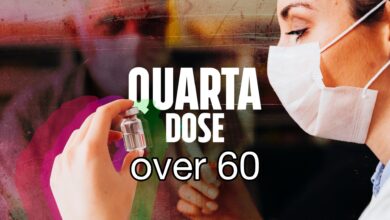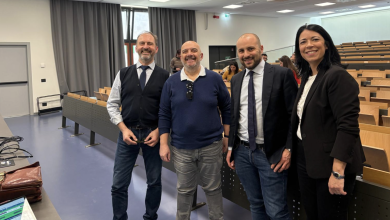
A study by the Mario Negri Institute for Pharmacological Research IRCCS (Authors: Norberto Perico, MD Monica Cortinovis, BiotechD Prof Fredy  Suter, MD Prof Giuseppe Remuzzi, MD) entitled "Home as the new frontier for the treatment of COVID-19: the case for anti-inflammatory agents" anti-inflammatories).
Suter, MD Prof Giuseppe Remuzzi, MD) entitled "Home as the new frontier for the treatment of COVID-19: the case for anti-inflammatory agents" anti-inflammatories).
The study was presented by some as a sensational discovery such as to unmask unclear plots in the management of the pandemic.
In reality it is not a novelty nor a "study" but a scientific review published by The Lancet magazine, a review of the literature produced with research on the use of non-steroidal anti-inflammatory drugs against Covid-19 in home care. Research that all demonstrate the effectiveness of these drugs in significantly reducing the risk of the disease developing into a serious form. But that was enough to make it the subject of political exploitation, with Aifa and the Ministry of Health under accusation for having initially indicated, for home care, only "tachipirina and watchful waiting".
"But this does not mean that they were wrong in dictating those guidelines," says Giuseppe Remuzzi, director of the Mario Negri Institute for Pharmacological Research in statements that appeared in various press organs. “They simply couldn't do otherwise, because there was still no scientific evidence to support anti-inflammatories. As soon as there were, they revised the indications and Italy was the first country to do so".
With the review, the Mario Negri Institute takes stock of the fight against the virus with Fans, with a critical synthesis of around twenty studies conducted in various parts of the world. Among these there are also the two researches carried out by the Institute itself. [editor's note: see below in "related news”]
The two studies demonstrated a reduction in hospitalizations, with early treatment based on NSAIDs, which oscillates between 80% and 90%. And positive effects were found by all the other studies summarized, "with results, explains Remuzzi, which from a practical point of view are very valuable".
All the research was done before Omicron, when the debate on the most appropriate home therapies was already inflaming the conflict. Those guidelines were revised in April 2021, as soon as the results of the first scientific investigations into the use of Fans arrived.
We publish some significant excerpts of the work, referring, for those who want to learn more, to the publication of the complete work “Home as the new frontier for the treatment of COVID-19: the case for anti-inflammatory agents” Show footnotes Published: August 25, 2022 The Lancet.
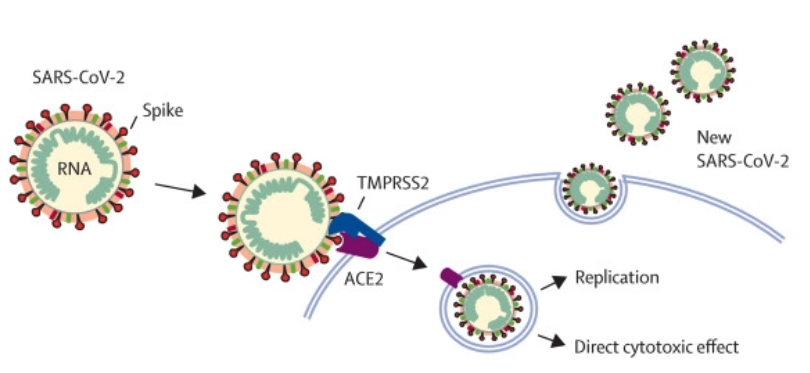 COVID-19, caused by SARS-CoV-2, is characterized by a broad spectrum of symptom severity requiring varying amounts of care at different stages of the disease. Intervening at the onset of mild to moderate COVID-19 symptoms in an outpatient setting would offer the opportunity to prevent progression to more severe disease and long-term complications. Because early disease symptoms variably reflect an underlying excessive inflammatory response to viral infection, the use of anti-inflammatory drugs, particularly nonsteroidal anti-inflammatory drugs (NSAIDs), in the early outpatient phase of COVID-19 appears to be a valuable therapeutic strategy. Some observational studies have tested NSAIDs (particularly the relatively selective COX-2 inhibitors), often as part of
COVID-19, caused by SARS-CoV-2, is characterized by a broad spectrum of symptom severity requiring varying amounts of care at different stages of the disease. Intervening at the onset of mild to moderate COVID-19 symptoms in an outpatient setting would offer the opportunity to prevent progression to more severe disease and long-term complications. Because early disease symptoms variably reflect an underlying excessive inflammatory response to viral infection, the use of anti-inflammatory drugs, particularly nonsteroidal anti-inflammatory drugs (NSAIDs), in the early outpatient phase of COVID-19 appears to be a valuable therapeutic strategy. Some observational studies have tested NSAIDs (particularly the relatively selective COX-2 inhibitors), often as part of 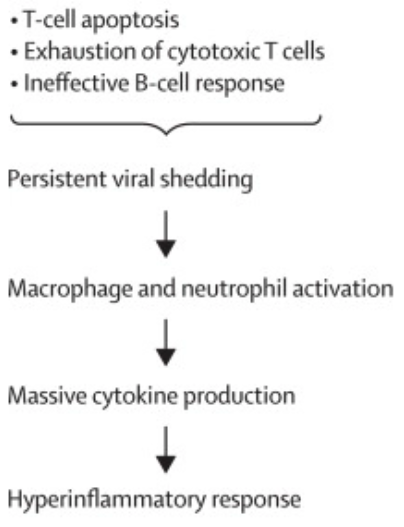 multi-pharmacological protocols, for the early outpatient treatment of COVID-19. The results of these studies are promising and indicate a crucial role of NSAIDs for the home management of people with initial symptoms of COVID-19.
multi-pharmacological protocols, for the early outpatient treatment of COVID-19. The results of these studies are promising and indicate a crucial role of NSAIDs for the home management of people with initial symptoms of COVID-19.
The COVID-19 pandemic continues to pose a serious threat to global public health. The most transmissible variants of SARS-CoV-2 have been responsible for the four major waves of infections that have spread worldwide since the beginning of 2020, with omicron (B. 1.1.529) becoming the dominant variant after the summer of 2021, followed by the emergence of other omicron stresses in 2022 (BA.2, BA.3, BA.4, and BA.5).
In this review, we briefly describe the pathogenic mechanisms underlying the early-stage inflammatory processes of COVID-19 and discuss the rationale for the use of nonsteroidal anti-inflammatory drugs (NSAIDs) as well as the evidence related to their risk-benefit balance in home and community environment. We also examine whether outpatient pharmacological interventions with corticosteroids could mitigate the ongoing inflammatory process, potentially protecting against the risk of progression to more serious disease.
Several recommendations have been proposed on how to treat people with COVID-19 with mild to moderate symptoms at home, starting with the use of anti-inflammatory drugs. The main NSAIDs recommended are relatively selective COX-2 inhibitors, indomethacin, ibuprofen and aspirin, often as part of a multidrug protocol. Some of the recommendations suggest acetaminophen as a safe therapy for the early management of pain and fever in people with COVID-19. However, it should be considered that (in addition to being a drug with modest anti-inflammatory activity) at relatively low doses, acetaminophen reduces plasma and tissue concentrations of glutathione, which could exacerbate COVID-19. Very few researchers have formally tested the proposed recommendations for outpatients with COVID-19 symptoms through observational studies, although those have shown encouraging results. Notably, the results of our studies corroborated the treatment protocol recommendations for early outpatient treatment of COVID-19 that we previously proposed based on the growing knowledge of the pathophysiology underlying the mild to moderate symptoms encountered at the onset of the disease. illness.
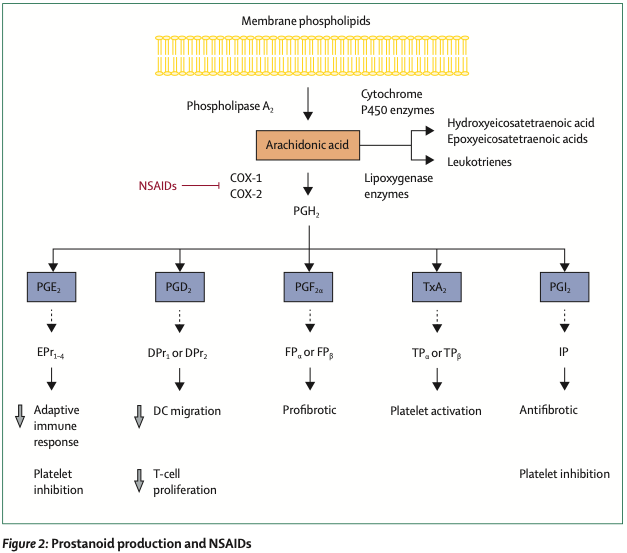 These treatment recommendations are based on three pillars: intervening at the onset of symptoms at home; start therapy as soon as possible after the family doctor has been contacted by the patient (without waiting for the results of a nasopharyngeal swab); and reliance on NSAIDs, especially relatively selective COX-2 inhibitors (Table 2). The overlap in COX-2 selectivity between celecoxib and nimesulide was the rationale for recommending these two drugs for early outpatient treatment of COVID-19 symptoms (Table 2). Aspirin or ibuprofen are the alternative treatments to these relatively selective COX-2 inhibitors, if these COX-2 inhibitors are not available or when signs of toxicity or contraindications to these drugs are evident based on the clinical characteristics and condition. patient history. NSAID treatment should continue for 3-4 days, but if symptoms persist it could be extended for up to 8-12 days, unless contraindicated.
These treatment recommendations are based on three pillars: intervening at the onset of symptoms at home; start therapy as soon as possible after the family doctor has been contacted by the patient (without waiting for the results of a nasopharyngeal swab); and reliance on NSAIDs, especially relatively selective COX-2 inhibitors (Table 2). The overlap in COX-2 selectivity between celecoxib and nimesulide was the rationale for recommending these two drugs for early outpatient treatment of COVID-19 symptoms (Table 2). Aspirin or ibuprofen are the alternative treatments to these relatively selective COX-2 inhibitors, if these COX-2 inhibitors are not available or when signs of toxicity or contraindications to these drugs are evident based on the clinical characteristics and condition. patient history. NSAID treatment should continue for 3-4 days, but if symptoms persist it could be extended for up to 8-12 days, unless contraindicated.
Furthermore, given the metabolic pathway of these NSAIDs involving, among others, cytochrome 3A4, family doctors should consider the risk of potential drug interactions, especially for patients with
COVID-19 who have started antiviral therapy with remdesivir or ritonavir-boosted nirmatrelvir. In 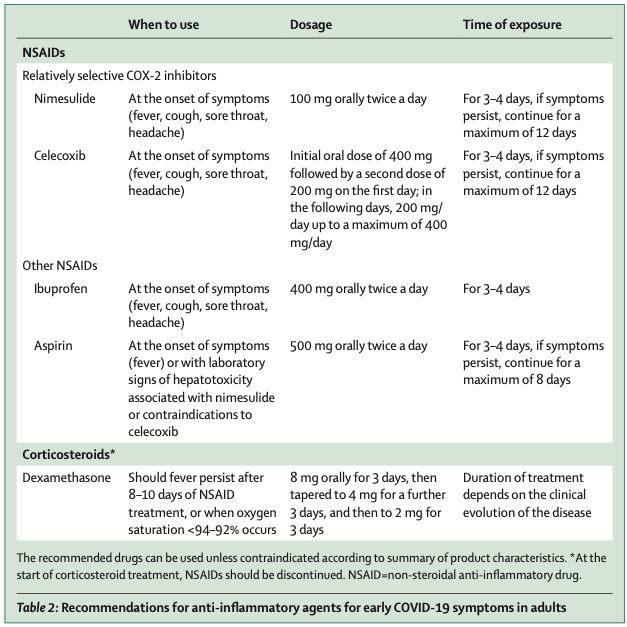 If so, potential strategies include adjusting the NSAID dose, increasing monitoring for potential adverse reactions, or temporarily stopping NSAIDs. These NSAIDs should be administered to treatment-naive patients over 65 years of age for the shortest duration possible and who are adequately hydrated. They can be prescribed to pregnant women but only in the first months of pregnancy, according to the summary of product characteristics. Celecoxib, ibuprofen and nimesulide should be avoided in children under 12 years of age, while aspirin should only be taken on prescription and at the dose recommended by the family doctor.
If so, potential strategies include adjusting the NSAID dose, increasing monitoring for potential adverse reactions, or temporarily stopping NSAIDs. These NSAIDs should be administered to treatment-naive patients over 65 years of age for the shortest duration possible and who are adequately hydrated. They can be prescribed to pregnant women but only in the first months of pregnancy, according to the summary of product characteristics. Celecoxib, ibuprofen and nimesulide should be avoided in children under 12 years of age, while aspirin should only be taken on prescription and at the dose recommended by the family doctor.
Overall, our studies and other observational studies indicate that anti-inflammatory therapy, especially NSAIDs, is critical for the management of outpatients with early symptoms of COVID-19, as alleviation of these symptoms protects against progression to a more serious illness that could eventually require hospitalization, placing a huge burden on the hospital system.
Related news: Ministry of Health Circular of 26 April 2021
AIFA. Update on COX-2 inhibitors
NSAIDs, non-steroidal anti-inflammatory drugs: what they are and how they are distinguished
Covid, do Fans reduce hospitalizations? A careful reading shows that this is not the case


